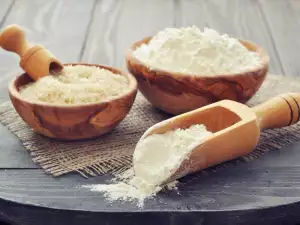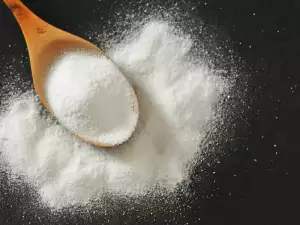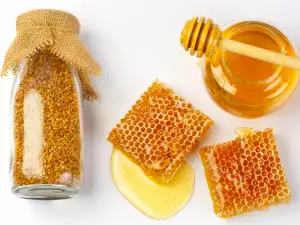The favorite of many processed cheese - it is so soft and tasty that it melts in your mouth. However, have you ever wondered what exactly it is and what processed cheese contains. It is no less interesting to find out how to make processed cheese. The purpose of this article is to answer all of these questions.
History of processed cheese
Processed cheese was produced for the first time in Switzerland before the First World War. At that time, the farmers who lived in Thun produced too much hard cheese and in order not to spoil it and throw it away, the farmers processed much of it. This marked the beginning of the history of processed cheese.
Nowadays, processed cheese is made from various dairy products: cheese, cottage cheese, butter, powdered or condensed milk, rennet. Also processed cheese is made from cheeses that have had a defect in their production.
Processed cheese composition
120 mg of calcium per 20 g of the product;
4.4 g fat per 20 g of the product;
2.3 g protein per 20 g of the product.
Processed cheese is quite a tasty and nutritious food, which contains a lot of protein, fat, important and valuable amino acids, vitamins and minerals. One package of processed cheese contains 15% of the required amount of calcium per day. For this reason, processed cheese is more healthy than yogurt.

Unlike harder cheeses, processed cheese is completely absorbed by the body. There are almost no carbohydrates in processed cheese. It is a very good source of vitamin B and phosphorus compounds, which are important for the health of our bones, nails and hair. The fats contained in processed cheese supply our body with vitamins E, D, A.
Also, processed cheese leaves an aftertaste in the mouth.
Choice of processed cheese
Doctors recommend that when you buy processed cheese, you need to look carefully at the packaging and should not be fooled by the low price. Many producers offer a fake product under the disguise of processed cheese. Experts advise that if you see processed cheese containing palm or rapeseed oil, it means that it is not a real product, but a counterfeit.
You should also not buy processed cheese in a plastic package with the "PS" mark on the bottom. This means that the packaging is made of polystyrene, which in many countries is prohibited for storing products. Packaging should be made of prolipropylene. At the bottom of the package made of this material, you will see the "PP" marking.
Potential harm from cream cheese
It should also be noted that soft processed cheese contains many sodium compounds, which are harmful to our body. Therefore, it should not be consumed much. If you have kidney problems, it is advisable to avoid this type of cheese. If your gastric juices have a high level of acidity, it is also not recommended to eat processed cheese, because it contains a large amount of citric acid.
The truth about processed cheese production

So far so good - that was the good side of processed cheese. Now it's time to look at the bad. In the commercials we watch on TV, this type of cheese is presented to us as very cheap, tasty and even original as a product that is ideal to spread on a slice of bread. Another issue is that this is not the case.
In fact, cheap processed cheese is a remnant of the production of artificial food additives. Processed cheese is pure in taste, but its flavors are made artificially from flavors and artificial food additives. Nutritional supplements are the most common way to make processed cheese. And here's how it's done:
Old cheese is used, that has already been spoiled - spoiled cottage cheese or cream, a lot of waste from the production of cheese, also frozen and rancid cheeses, that have been in a cold storage space for a long time. Emulsifying salts and flavorings and additives are added to them, which make the taste of processed cheese. The cheese mass made in this way is heated to a temperature of 95 degrees Celsius and citric acid salt is added, which can cause allergies when consumed.
Sodium metaphosphate is also added. A jelly-like substance made from algae is also added, which can also cause an allergic reaction.
Consumption of citric acid, or more precisely its salts, can cause many side effects such as high blood pressure, nausea, abdominal pain, vomiting.
Processed cheese contains phosphates, which are also used in the production of detergents. You know that cheese is generally a good source of calcium. However, these same phosphates have been shown to extract calcium from the bones, which is a prerequisite for arthritis, as well as osteoporosis.
As already noted, people who have kidney problems should not eat foods that contain phosphates, such as processed cheese.
Sorbitol is used to preserve processed cheese. This is a substance that is known in Europe as one of the most dangerous preservatives. Studies show, that if used over a long period of time, it can lead to chronic allergies.
Very often in the store we see processed cheese with different flavors - mushrooms, salmon, shrimp and many others. These are just flavors and if consumed for a long time, they slowly but surely poison our body.
Since processed cheese is made from dairy products, it should contain milk fat. But this is not the case. Milk fats are replaced with vegetable oils, because it is cheaper and saves money.

Vegetable oil is very cheap. Palm and coconut oil are the cheapest products in the food industry. In most cases, processed cheese is wrapped in foil, but it is not always tightly closed and this way moisture and condensation are obtained. This way, mold and bacteria often appear on the processed cheese. This means that a person can be poisoned by consuming this type of cheese, even if it is completely fresh. When you buy processed cheese, you need to be careful and check, that it is well sealed.
And if you've already chosen quality processed cheese or made your own homemade processed cheese, then check out these delicious processed cheese recipes.




















Comments